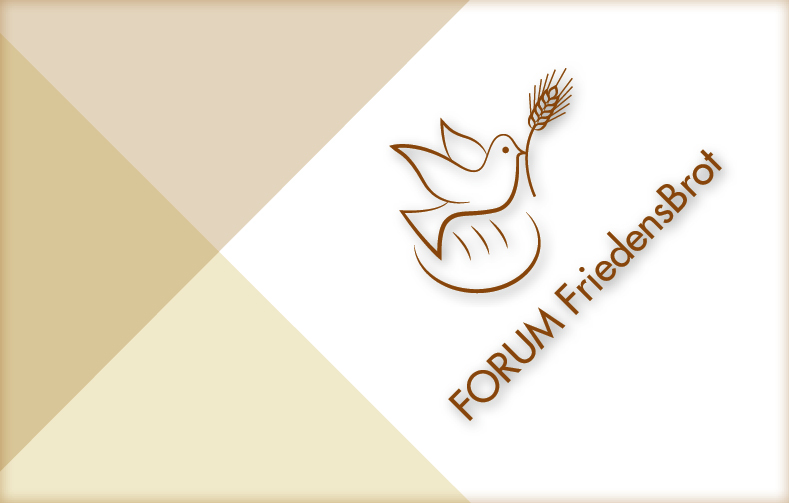
Berlin, 19-10-2022
One could have heard the famous “needle in the haystack” drop during the FriedensBrot FORUM on 19th October, 2022 in the visitors’ center of the Berlin Wall memorial. This, the 7th FORUM, came under the headline “Agriculture needs peace: In the Ukraine, for Europe!”. Tense, sometimes even touched, the persons attending followed a remarkable discussion with DBV president Mr Joachim Rukwied and the Ukrainian agricultural entrepreneur Dr. Alex Lissitsa, member of the executive committee of the Ukrainian agricultural association UCAB.
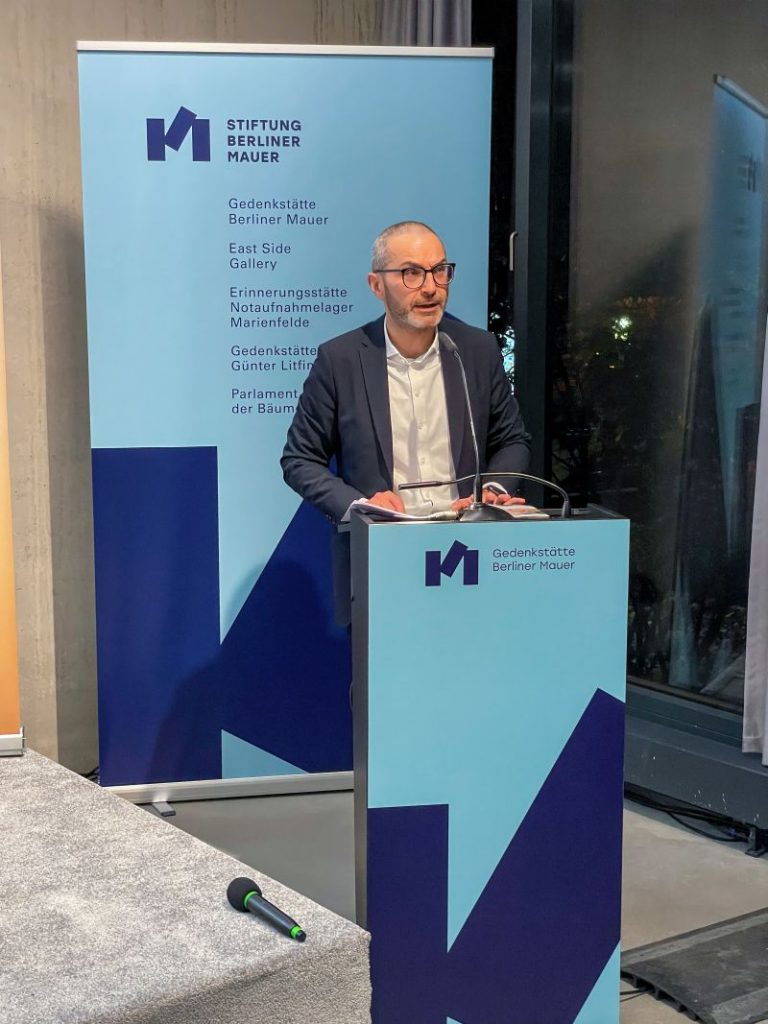
At the beginning, FriedensBrot chairman Anton Blöth expressed his pleasure about the FORUM again and at last taking place “live and in colour”, but, on account of the subject matter, soon changed to a thoughtful tone. Unfortunately, FriedensBrot’s principles “Agriculture needs peace, peace causes remembranceremembrance creates values” gained a dramatic urgency with regard to the Russian war of aggression against Ukraine and calls for contemplation and action.
Mr Blöth made reference to FriedensBrot’s “Ukraine” fund-raising campaign, which was started early in 2022, and he thanked all contributors. It is intended to give Ukraine, but also other EU candidate countries such as Georgia and Moldova a perspective through the FriedensBrot network “agriculture and peace”.
Moreover, Mr Blöth advised that, in 2024, the 10th Ukrainian Maidan, and the 35th anniversary of the fall of the Berlin Wall, the European FriedensBrot, after 10 years of travel through the partner countries, will return to Berlin, the place, from which the rye seed and the FriedensBrot idea originated.
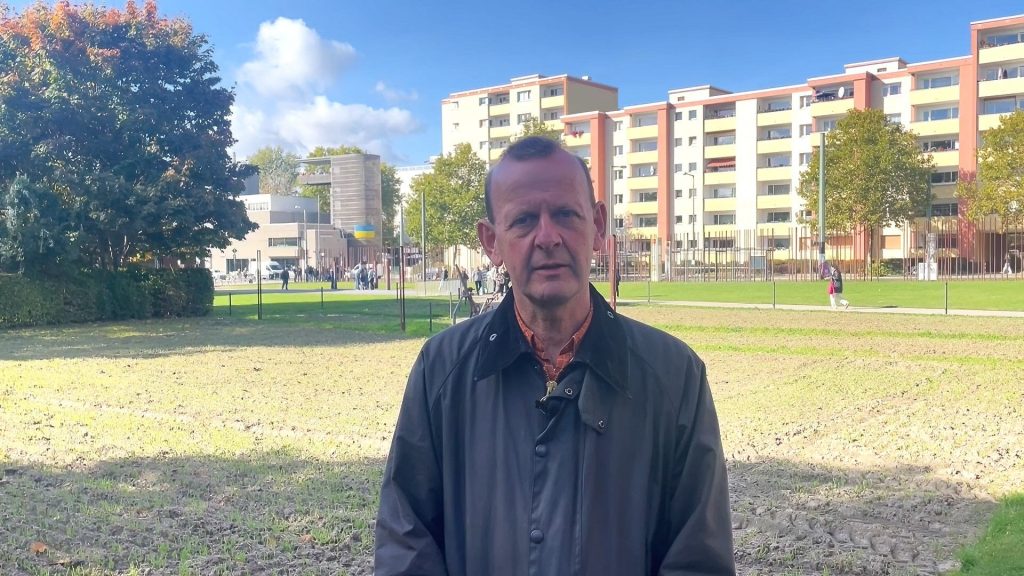
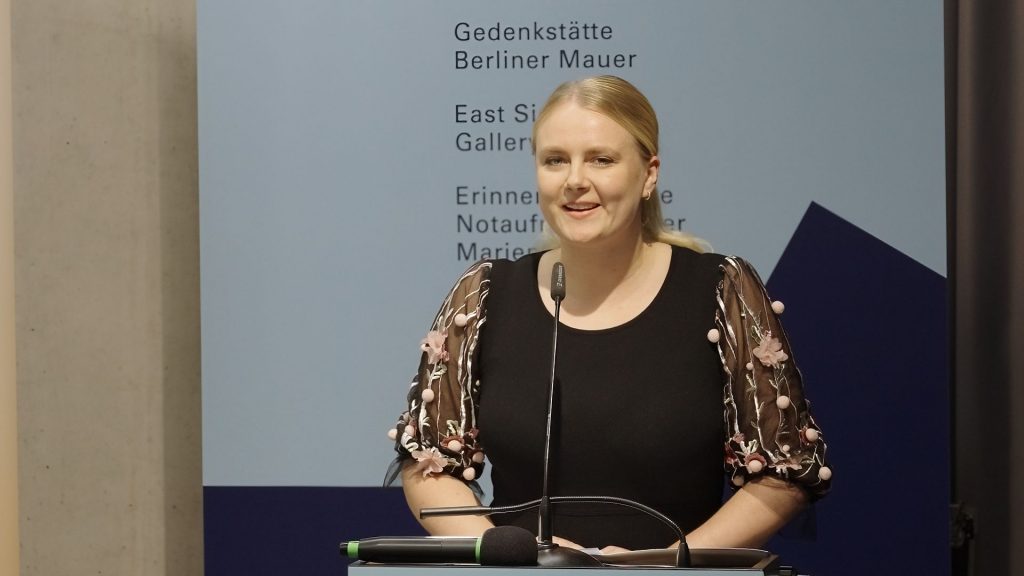
Professor Axel Klausmeier, director of the Stiftung Berliner Mauer (Berlin Wall foundation) and
Eivina Žižiūnaitė-Allbaz of the Lithuanian embassy and new president of the Club of Agrarian Diplomats in Germany used a similar tone in their words of greeting and affirmed their solidarity with Ukraine. In his video message, Mr Klausmeier reminded the audience of the emphatic words of the founding chairman of the FriedensBrot association, the deceased “Mauerpfarrer” Manfred Fischer: “Where there is bread, there is peace; where there is peace, there is bread!”. The agricultural diplomat Žižiūnaitė-Allbaz emphasized the value of European and international cooperation and closed with a heartfelt “Slawa Ukrajini“.
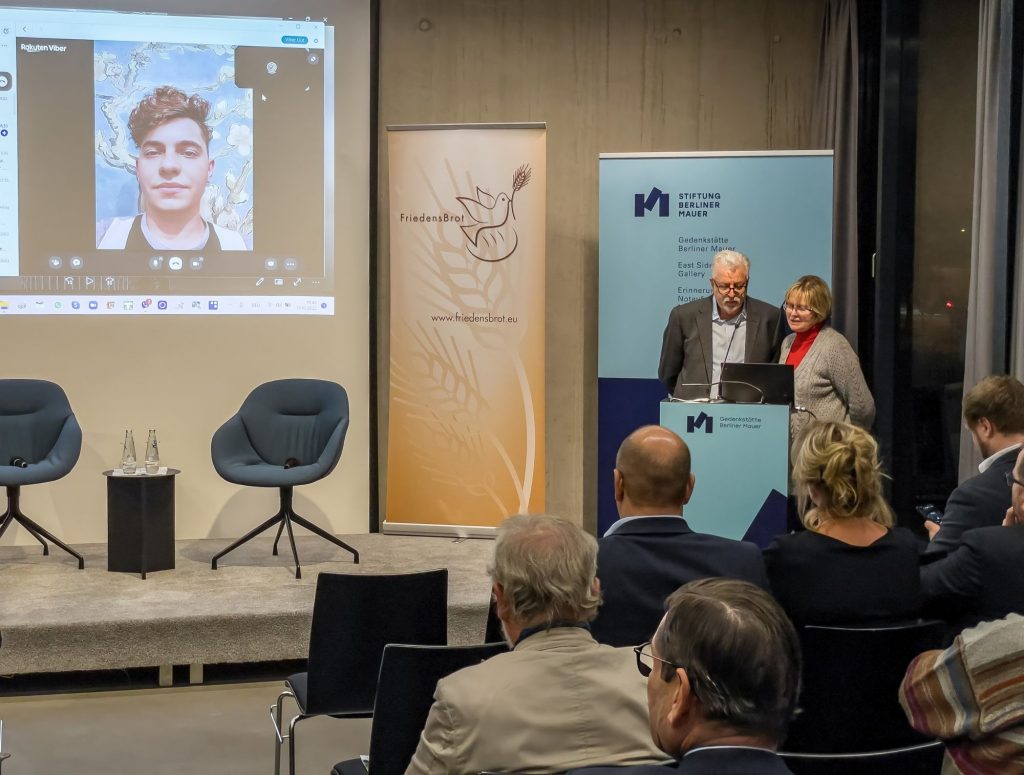
A first, for many participants also emotional, highlight of the evening was the live connection of 21-year-old Dmytro Zhukov from Charkiv, who was then interviewed by managing director Dr. Gibfried Schenk and his wife Dr. Marion Schenk. Dmytro told us of his new life, every day of which since the beginning of the war he is baking bread for the people in need. The young man’s most ardent wish is for an early return of peace so that he can take up studies and travel Europe, he told the audience.

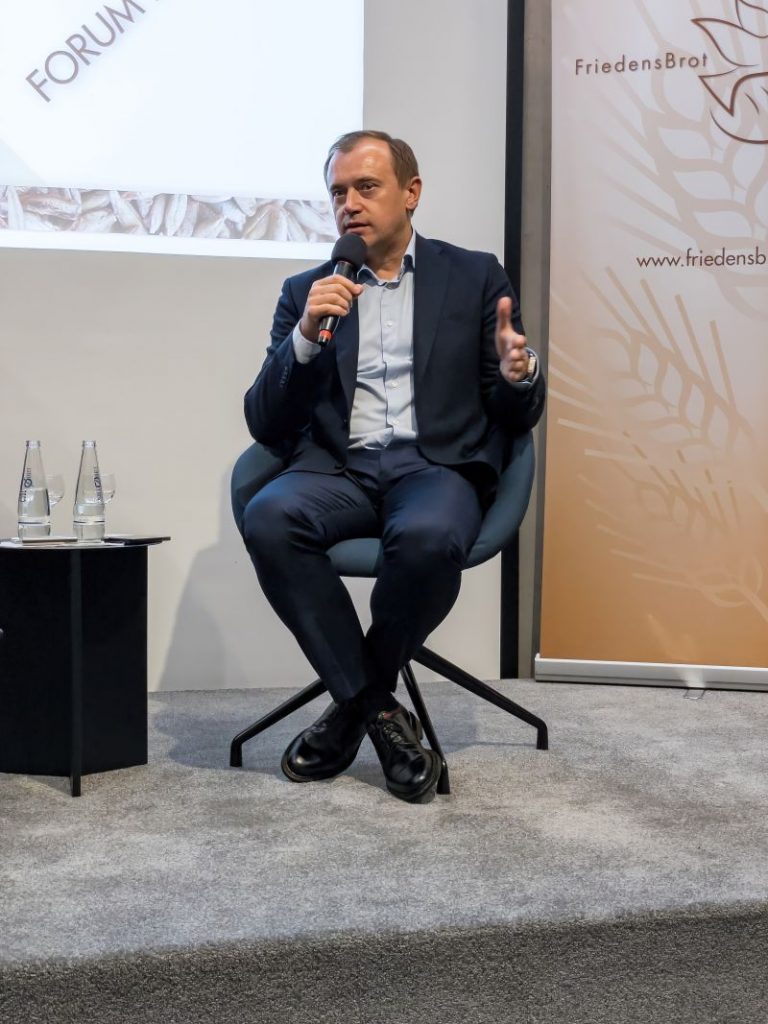
Not less impressive were the narrations by Dr. Alex Lissitsa who, together with DBV president Rukwied held the conversation in the FriedensBrot Forum, moderated by Mr Anton Blöth. Dr. Lissitsa at age 48 manages one of the biggest Ukrainian agricultural companies, ranks among the country’s leading agricultural experts and, after his academic education which took him to the Humboldt-Universität in Berlin as a doctoral candidate, founded the Ukrainian Agribusiness Club (UCAB). Sentences which were repeated by Dr. Lissitsa during interviews, such as “My working day began with the simple query in the chat with 36 lead employees, as to who is no longer alive. Somebody was missing every day.” let the guests hold their breaths.
The Russian attack on 24 February 2022 which, according to Dr. Lissitsa could have been expected, resulted in dramatic changes in the country and the company. Large parts of the holding area of approx. 120,000 hectares are in the north and in central Ukraine. The company has six silo installations with a total storage capacity of 550,000 tons and, until September had a dairy cattle herd of 1,000 cows. In the first days of the war, large parts of the plant were occupied by Russian soldiers. There was no more access to offices, accounts, technical equipment – and to the livestock which could not be milked and fell sick, finally resulting in the slaughter and abandonment of the entire dairy cattle herd.
Even more dramatic, however, was the situation for the population and many of his around 2,000 staff members during the first days of the war. Dr. Lissitsa also told us of (continuing) fear and despair in the hail of bombs and in the face of Russian violence during their advance into villages and towns. Only after the expulsion and retreat of the Russians, there returned a little normality to life and the agricultural firms. “Life had to and still has to continue”, but the circumstances and basic conditions naturally are all but easy. Lack of working staff, low planning reliability, complicated and costly logistics, as well as diminishing capital reserves are taking the agicultural firms to the brink of their existence – with extensive consequences for the agricultural production and its markets. Dr. Lissitsa also caught the audience’s attention with his statement that next year, Ukraine can be expected to fail as an exporter of cereals and oilseeds, so that the global wheat market would fall short by 10%.
This prognosis was also taken up by Mr Joachim Rukwied, president of the German farmers’ union This is the point at which everybody should become aware of the relevance of agriculture to the overall system and the contribution by German and European farmers towards peace and stability. Everything must be done to secure global food availability, and irresponsible debates on the set-aside of arable land need to be stopped, so his demand. Mr Rukwied is backing the EU sanctions against Russia, but also pointed out that increasing energy prices and insecurities of the supply markets are a severe strain for the farmers and the entire agricultural and food industry. He conceded, however, that the situation cannot be compared with that of the Ukrainian agriculture.
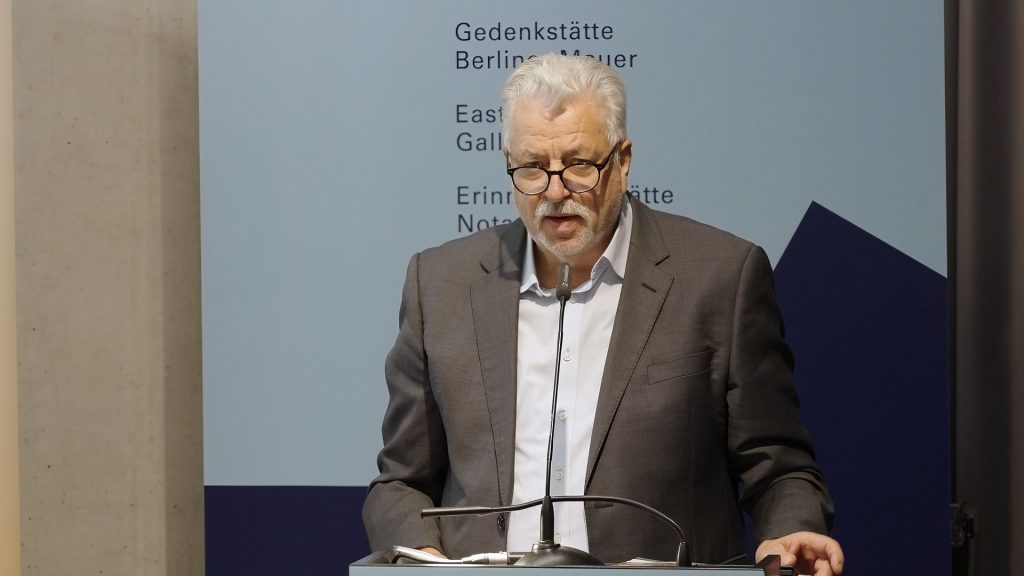
The FriedensBrot association thanked the supporters of the 7th FriedensBrot Forum by presenting them with a FriedensBrot traditionally baked by the Berlin baker Mr Zimmermann. Yet another loaf of PeaceBread was handed under heavy applause and with the expression of gratitude by the association to Ms Nina Parzych for her organizational support of the FORUM in the past seven years, however this year for the last time. Dr. Schenk pointed out, how Ms Parzych’s thoughtful and congenial way has positively affected PeaceBread.
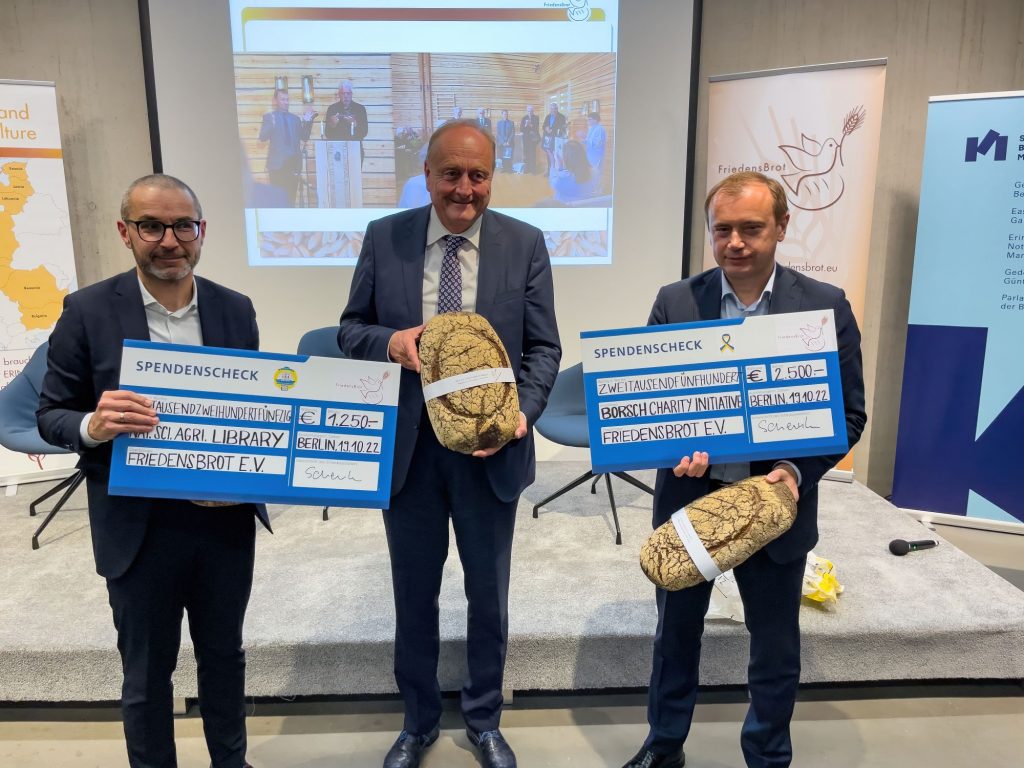
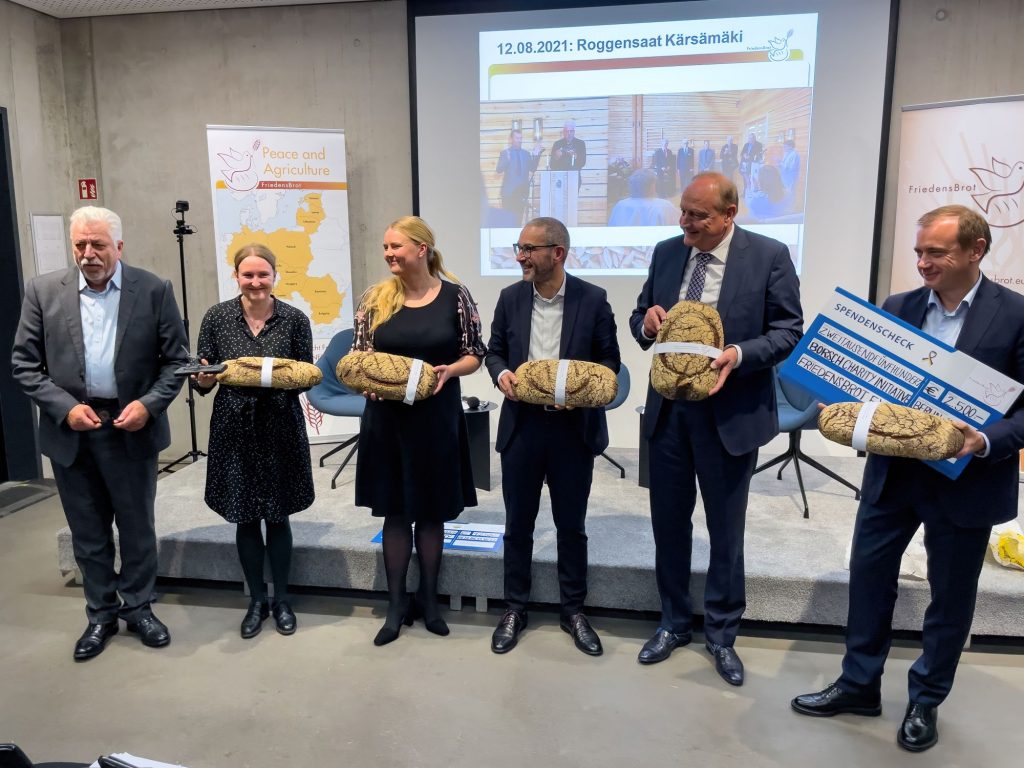
At the end of the 7th FriedensBrot FORUM, further donations from the Ukraine campaign were handed over to the “Bortsch” initiative in support (seeds and plants) of Ukrainian families for home growing of vegetables for their national dish. Dr. Alex Lissitsa is one of the initiators of this aid program and received another 2,500 Euro from the fund-raising campaign. Another tranche went to the Kiev National library of agricultural science for the digitalization of their valuable inventory as told by attending library staff members.
In total, the FriedensBrot fund-raising campaign yielded around 7,500 Euro from friends, sponsors, and members. In addition to the above-mentioned initiative and the library in Kiev, the “Union of Ukrainians in Romania”, was also considered.
In connection with the FriedensBrot FORUM, Dr. Alex Lissitsa gave the Agra Europe press service an interesting interview which we, with his kind permission, are pleased to release hereinafter:
Pictures: FriedensBrot e.V. / FILMART GmbH
